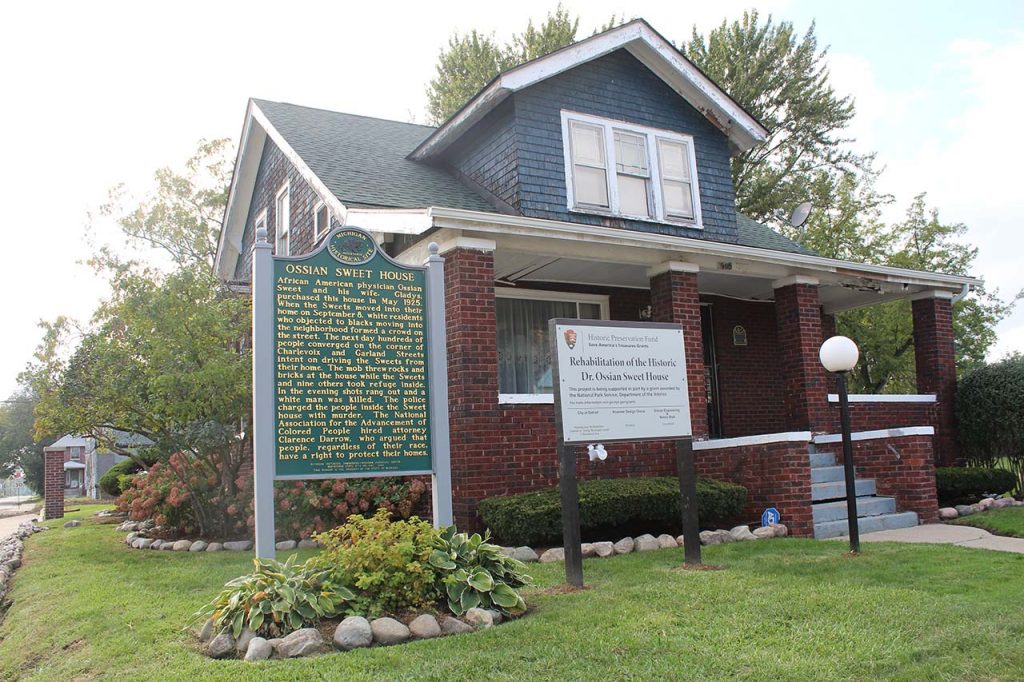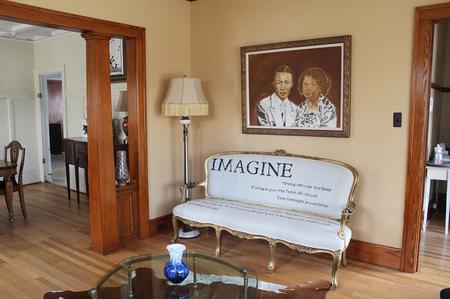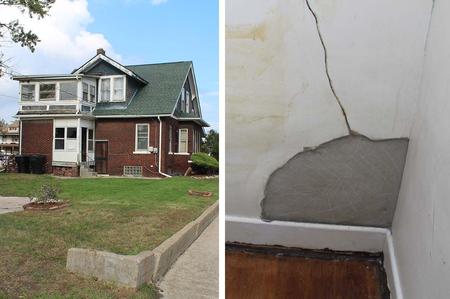Detroit Wants to Restore Historic Home of Ossian Sweet to Teach Others About Housing Discrimination
The city received a $500,000 grant from the National Park Service to help turn the house into an interactive museum and city park.

The City of Detroit is seeking proposals to help preserve a home where the only Black family living in an all-white neighborhood defended itself against a white mob in 1925.

The Ossian Sweet House is on the National Register of Historic Places but is in need of repairs.
D’Marco Ansari, a development specialist with Detroit’s Housing and Revitalization Department, says the city wants to bring the landmark back to its former glory to educate people about housing discrimination.
“We don’t really understand civil rights and housing and the fact that segregation was written into our laws, written into our housing codes, and not being able to sell a home to a person because of the color of their skin. We don’t fully understand what that means. And that’s what we’re hoping to accomplish by renovating this house.”
Ansari says it will take some work, including fixing the masonry, bricks, walls and more to restore the home to what it looked like in 1925.

The city received a $500,000 grant from the National Park Service to help turn the house into an interactive museum and city park. Construction companies have until Oct. 15 to submit their proposals to repair the home.
Black physician Ossian Sweet and his family moved into the east side home on Sept. 8, 1925. Their second night in the home the Sweets had guests over because they were worried something might happen. Indeed, they were met with hostility. A large group of white neighbors gathered outside, throwing rocks and bottles at the house. While defending the home from the angry mob, Sweet’s brother shot and killed a white man who was outside in the crowd. Another person was injured.
The Sweets and their guests were charged with murder. They were represented by Clarence Darrow, a famous lawyer known for being the defense attorney for John T. Scopes, a high school teacher who was accused of breaking the law by teaching Darwinism. The first trial ended in a hung jury and the second with an acquittal and the Sweets moved back into their home on Garland Avenue. The case was a major victory for African Americans and civil rights.
Today the home is owned by Daniel Baxter, an election administrator for the City of Detroit.
Trusted, accurate, up-to-date.
WDET strives to make our journalism accessible to everyone. As a public media institution, we maintain our journalistic integrity through independent support from readers like you. If you value WDET as your source of news, music and conversation, please make a gift today.
